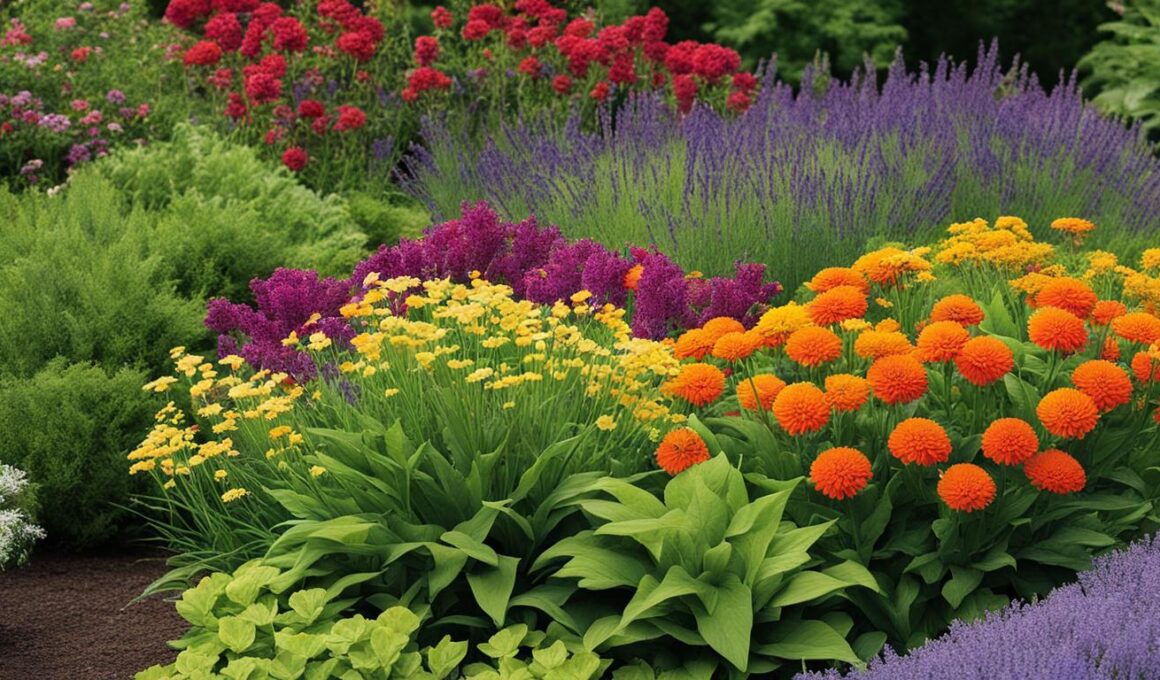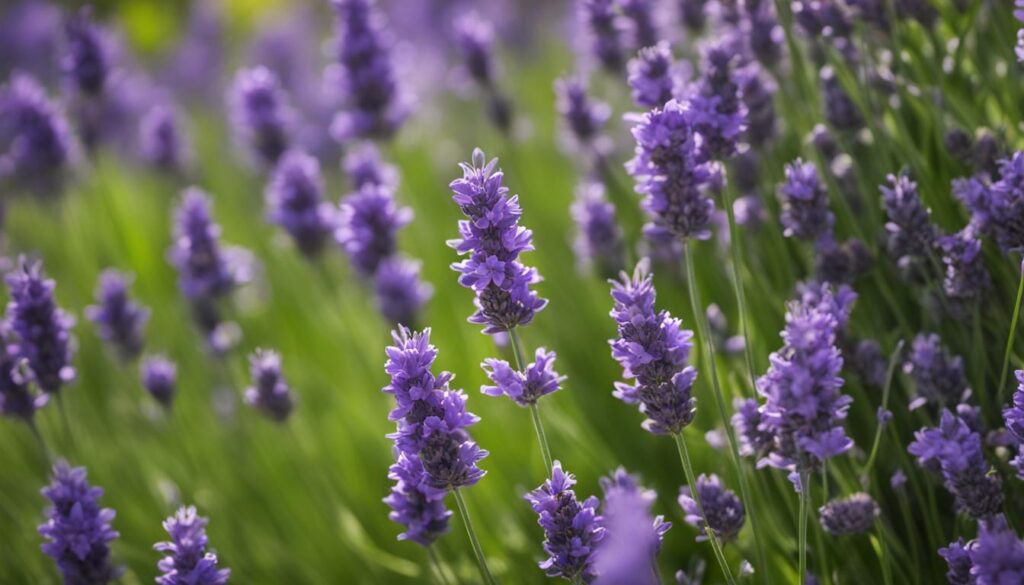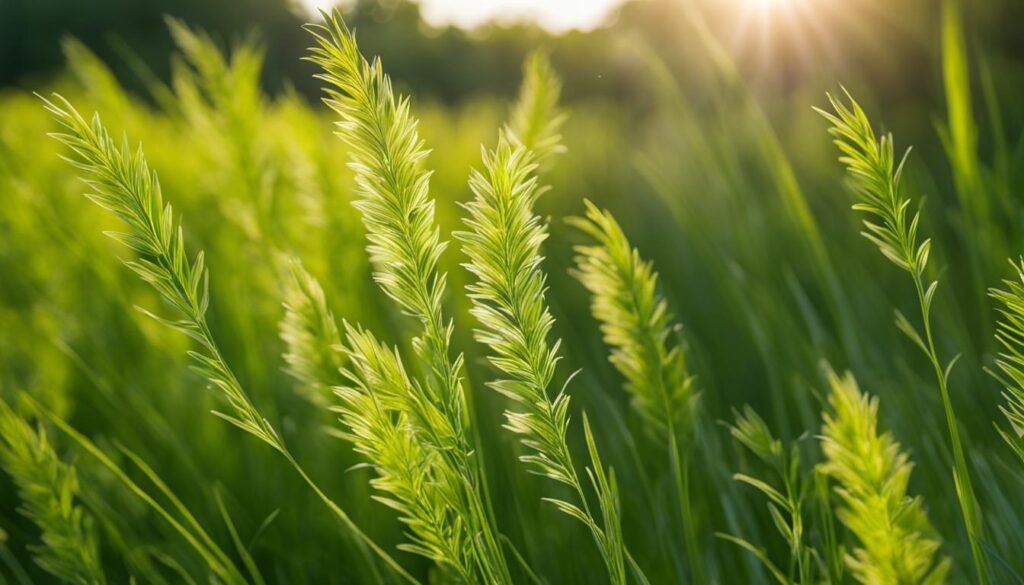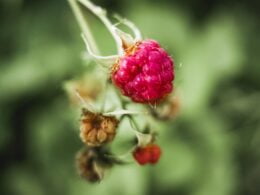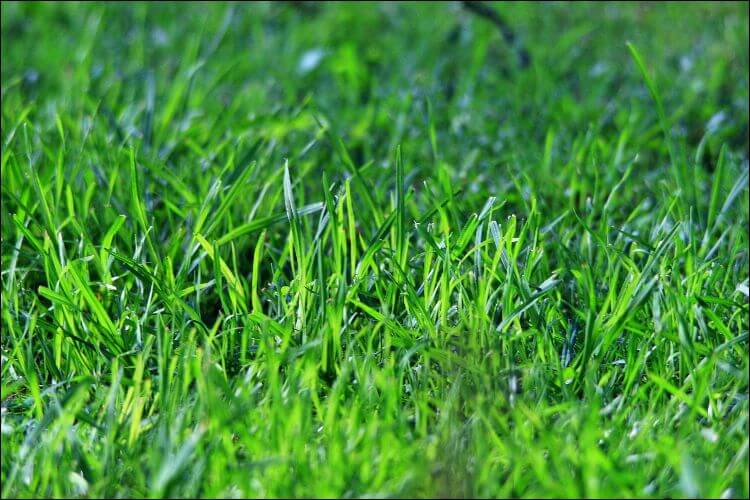Planting certain types of plants in your garden can help repel bees and mosquitoes naturally. These plants emit fragrances that are pleasant to humans but repel these insects, making your outdoor time more enjoyable. Here are some plants that are known to be effective at repelling bees and mosquitoes.
Key Takeaways:
- Lavender leaves have fragrant essential oils that repel mosquitoes.
- Marigolds emit a smell that deters mosquitoes and other pests.
- Citronella grass is a natural ingredient commonly used in mosquito repellents.
- Catmint is ten times more effective than DEET in repelling mosquitoes.
- Rosemary acts as a versatile repellent, keeping mosquitoes and other insects away.
Lavender – A Fragrant Repellent
Lavender is a perennial plant that not only adds beauty to your garden but also acts as a natural mosquito repellent. The lovely fragrance of lavender is attractive to humans but repels mosquitoes, making it a perfect addition to your outdoor space. The essential oils found in lavender leaves have been found to hinder a mosquito’s ability to smell, effectively keeping them at bay.
“Lavender is a versatile plant that not only repels mosquitoes but also has a calming effect on humans. Its fragrance can help reduce stress and promote relaxation, making it an excellent choice for creating a peaceful and mosquito-free environment in your garden.”
Lavender is a low-maintenance plant that thrives in warmer areas. It can be planted in various areas of your garden, such as seating areas or doorways, where guests often gather. Whether you’re hosting a backyard party or simply enjoying a quiet evening outside, lavender will help keep mosquitoes away and allow you to enjoy your time outdoors without the constant buzzing and biting.
- Plant lavender near windows and doors to prevent mosquitoes from entering your home.
- Place potted lavender near seating areas to create a mosquito-free zone for your guests.
- Harvest the lavender flowers and use them to make homemade mosquito repellent sprays or sachets.
Marigold – Colorful and Effective
Marigolds are annual flowers that emit a smell that deters mosquitoes. They can be grown in pots and placed near patios or entrances to keep bugs out. Marigolds are also effective at repelling other pests like aphids, thrips, and tomato hornworms. They are easy to grow and add a pop of color to borders and vegetable gardens.
If you’re looking for an attractive and natural way to keep mosquitoes away, consider planting marigolds in your garden. These vibrant annual flowers release a scent that mosquitoes can’t stand, making them an effective insect repellent. Marigolds can be grown in pots, allowing you to strategically place them near patios, seating areas, or entrances to create a mosquito-free zone for your outdoor activities.
In addition to repelling mosquitoes, marigolds offer another benefit – they also deter other common garden pests. Their strong aroma acts as a deterrent for aphids, thrips, and tomato hornworms, making marigolds a valuable addition to your vegetable garden. Plus, with their bright and cheerful colors, marigolds can add a pop of beauty and vibrancy to your borders, flower beds, and container gardens.
Why are marigolds effective as insect repellents?
Marigolds contain natural compounds, such as limonene, that repel mosquitoes and other insects. These compounds emit a fragrance that mosquitoes find unpleasant, driving them away from the area. The strong scent of marigolds masks the scents of humans and other attractants, making it harder for mosquitoes to locate their targets.
Source: Your Garden Guide
Citronella Grass – The Natural Ingredient
Citronella grass, also known as lemon grass, is a powerful natural ingredient when it comes to repelling mosquitoes. This grass contains oils that have been proven to effectively keep mosquitoes at bay. If you are looking for a natural and environmentally friendly way to protect yourself from these annoying pests, citronella grass is a great option.
Growing citronella grass is relatively simple. It thrives in sunny areas and can be cultivated in large planters or directly in the ground. As long as it receives enough sunlight and is well-drained, citronella grass will flourish. This plant is typically grown as an annual, meaning it will need to be replanted each year, especially in colder climates.
Did you know? The scent of citronella grass masks the scents that attract mosquitoes, making it an effective natural mosquito repellent. It can also be used to make your own DIY citronella candles or citronella oil for topical use.
Benefits of Citronella Grass:
- Natural mosquito repellent
- Easy to grow and maintain
- Can be used for DIY citronella products
- Environmentally friendly alternative to chemical repellents
By incorporating citronella grass into your outdoor space, you can create a mosquito-free environment without the need for synthetic insect repellents. Enjoy the pleasant scent of citronella while keeping mosquitoes away naturally.
Catmint – A Mighty Repellent
If you’re looking for a highly effective plant to repel mosquitoes, look no further than catmint. This mint family plant, also known as catnip, has been found to be ten times more effective than DEET, the chemical commonly used in insect repellents. Not only does catmint keep mosquitoes at bay, but it also adds a touch of beauty to your garden with its vibrant blooms.
Catmint is easy to grow and maintain, making it a popular choice for many gardeners. It is a perennial plant that blooms from early summer to fall, providing you with long-lasting protection against mosquitoes throughout the warmer months. Its strong fragrance acts as a natural deterrent, keeping these pesky insects away from your outdoor space.
Whether you’re hosting a backyard barbecue or simply enjoying a quiet evening on your patio, incorporating catmint into your garden can make a significant difference in your overall comfort. You can plant catmint in borders, containers, or even use it as a groundcover. Just be mindful that catmint can become invasive if not controlled, so regular pruning and maintenance are important to keep it in check.
Rosemary – A Versatile Repellant
When it comes to repelling mosquitoes, rosemary is a versatile and effective option to consider. Not only is rosemary a flavorful herb that can enhance your culinary creations, but it also acts as a natural mosquito repellant with its woody scent. By incorporating rosemary plants into your outdoor spaces, you can keep mosquitoes at bay while enjoying the great outdoors.
Rosemary’s mosquito-repelling properties are not limited to just mosquitoes. This herb can also deter pests like cabbage moths and carrot flies, making it a useful addition to your vegetable garden. Its aroma is pleasant to humans but serves as a deterrent to these unwanted insects.
Growing rosemary is relatively easy, especially in hot and dry climates. It thrives in containers, allowing you to place it strategically around your patio, seating areas, or porches. Additionally, rosemary plants are highly adaptable and can be pruned into various shapes and sizes, making them versatile for use as borders or decorative elements in your garden.
When planning your mosquito-repellent garden, don’t forget to include rosemary among your plant selections. Its dual functionality as a flavorful herb and a natural mosquito repellant makes it a valuable asset to any outdoor space. With rosemary, you can keep mosquitoes and other pests away while enjoying the beauty and fragrance of this versatile plant.
Can Baking Soda Repel Bees and Mosquitoes from Plants as Well?
Yes, the secrets of baking soda for plants include the ability to repel bees and mosquitoes. Baking soda can be sprinkled around the base of plants to help deter these insects. Its abrasive texture and alkaline properties make it an effective natural deterrent, keeping the plants safe from unwanted pests.
Conclusion
Incorporating plants that repel bees and mosquitoes into your garden can provide natural pest control and make your outdoor time more enjoyable. These plants emit fragrances that are pleasant to humans but repel these insects, creating a peaceful environment. Lavender, marigolds, citronella grass, catmint, rosemary, and others on this list have been proven to be effective at repelling bees and mosquitoes.
Along with planting these repellent plants, it’s important to practice good mosquito control. Eliminating stagnant water sources like birdbaths or puddles can help reduce mosquito populations. Additionally, using natural mosquito repellent products, such as those containing essential oils, can further enhance the effectiveness of your pest control efforts.
By taking these steps, you can create a garden that not only looks beautiful but also acts as a natural barrier against unwanted insects. Enjoy your time outdoors without the annoyance of bees and mosquitoes buzzing around. Explore the wide range of plants that repel these pests and bring peace to your garden.
FAQ
Are these plants safe for humans?
Yes, the plants mentioned in this article are safe for humans. However, it’s always a good idea to research any potential allergies or sensitivities before introducing new plants into your garden.
Can I grow these plants indoors?
Some of these plants, such as lavender and rosemary, can be grown indoors as long as they receive enough sunlight. However, plants like citronella grass and marigolds are better suited for outdoor gardens.
How do I care for these plants?
Each plant has specific care requirements, but in general, they prefer well-drained soil and regular watering. It’s best to research the specific needs of each plant and provide the appropriate care to ensure their health and effectiveness as repellents.
Can I use these plants to repel other insects?
Yes! While these plants are specifically known for repelling bees and mosquitoes, they can also deter other pests like aphids, thrips, cabbage moths, and more. They provide a natural and environmentally friendly way to control various garden pests.
Will having these plants completely eliminate bees and mosquitoes?
While these plants are effective at repelling bees and mosquitoes, they may not eliminate them completely. It’s important to note that bees play a vital role in pollination, so it’s best to strike a balance between repelling pests and supporting beneficial insects in your garden.





